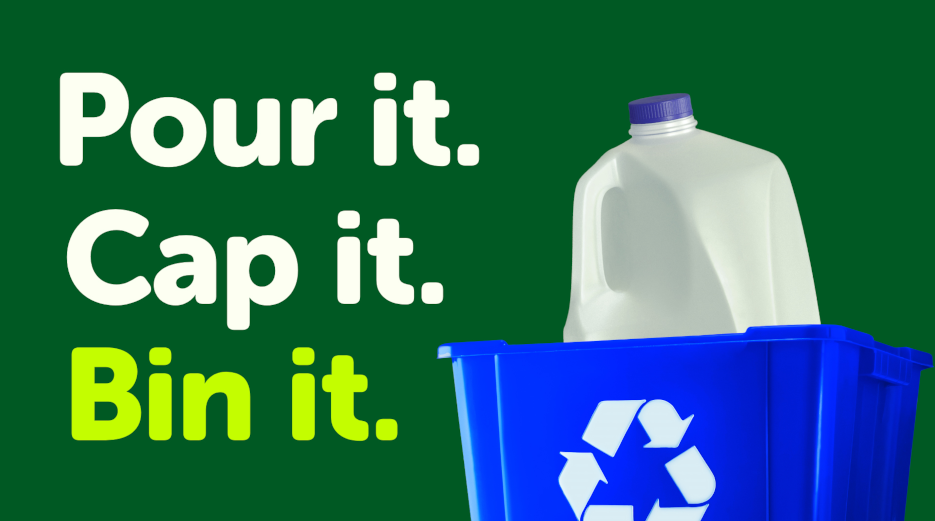California Dairy Processors Innovate to Cut Emissions and Close Loops
- Dairy Cares

- Aug 11, 2022
- 3 min read
Updated: Sep 6, 2022

While California dairy farmers have been busy adopting more planet-smart practices, so have the people who process and deliver milk. In 2020, the entire U.S. dairy community (field, farm and processor) committed to achieve greenhouse gas neutrality by 2050. As they contribute to this effort and work toward California’s own ambitious climate and goals, dairy processors in the Golden State are trying new strategies and delivering positive results. They are thinking outside of the milk carton—or rather rethinking it and how it gets from farm to consumer.
Pioneering Packaging and Recycling Efforts

Petaluma-based Clover Sonoma is a third-generation family-owned and operated dairy company at the forefront of innovative, sustainable packaging solutions. In 2020, the company launched the first fully renewable milk carton in the United States. This year, Clover Sonoma launched the first post-consumer recycled (PCR) gallon milk jug. Starting with 30% PCR content, the company is committed to increasing the PCR content across all their organic gallon milk jugs by 2025. Packaging is a major area of focus for Clover Sonoma; they work to decrease the use of fossil fuels, utilize less plastic, encourage recycling, and ultimately bring sustainable dairy products directly from family farms to consumers.
In 2021, the California Milk Advisory Board, in partnership with Clover Sonoma and MilkPEP, launched a public information campaign aimed at increasing awareness of the recyclability of milk jugs made of high-density polyethylene or #2 plastic. The "Recycle the Jug" campaign—with the “Pour it. Cap it. Bin it.” message—is helping drive sustainable behavior by promoting the recycling of plastic gallon and half gallon milk jugs.
Transitioning to Zero Tailpipe Emissions

Producers Dairy is a third-generation family-run dairy processor and direct-to-store supplier that is investing in more sustainable transportation. The company has integrated two Volvo VNR Electric, zero-tailpipe-emission trucks into their fleet—the first commercial, battery-electric Class 8 trucks ever deployed in California’s Central Valley. The electric trucks are delivering farm-fresh dairy products from the Fresno facility to local grocery stores.

"We are excited to integrate these first two Volvo VNR Electric trucks into our fleet as we work to reduce emissions on local delivery routes,” said Scott Shehadey, president, Producers Dairy. “This investment in zero-tailpipe-emission technology aligns with our mission to enhance the quality of people’s lives, and we are grateful to each of the organizations that supported us, including the San Joaquin Valley Air Pollution Control District, Volvo Trucks, Affinity Truck Center, the California Air Resources Board, and AMPLY Power.”
To further promote positive change, Producers Dairy also participates in clean-transportation educational programs, sharing news about how the new trucks are performing, advice for other companies with truck fleets, and how they installed on-site charging infrastructure to power their current fleet while also planning for more electric trucks in the future.
Using the Sun in a New Way

California’s dairy processors are also working to adopt state-of-the-art technologies in their facilities—cutting emissions and reducing reliance on fossil fuels. California Dairies, Inc.—the state’s largest farmer-owned dairy cooperative—is implementing two innovative solar thermal projects that will reduce natural gas consumption and GHG emissions. The projects are being supported by incentive funding from the California Energy Commission’s Food Production Investment Program (FPIP), and will help greatly advance clean energy goals.
Processing milk into dairy products requires large amounts of heat, typically provided by burning natural gas. Solar thermal technology directly captures and concentrates heat from the sun, holding great potential to reduce natural gas consumption and GHG emissions in dairy processing. To harness this potential, California Dairies Inc. has been designing and installing a high-temperature solar thermal system at both its Turlock South and Visalia plants. These projects are demonstrating innovation in renewable energy—potentially paving the way for wider adoption on other large-scale processing operations.
Collaborating and Innovating for the Future
Sustainable packaging, electric vehicles, and solar thermal are just a few of the new practices and technologies being deployed by California’s dairy processors. By working together throughout the supply chain, dairy farmers, processors, food brands, as well as government and private partners are effectively protecting our planet with a sense of urgency.
Through diligence, teamwork, and significant investments, California dairy processors are creating a more planet-friendly future.





I want to visit.